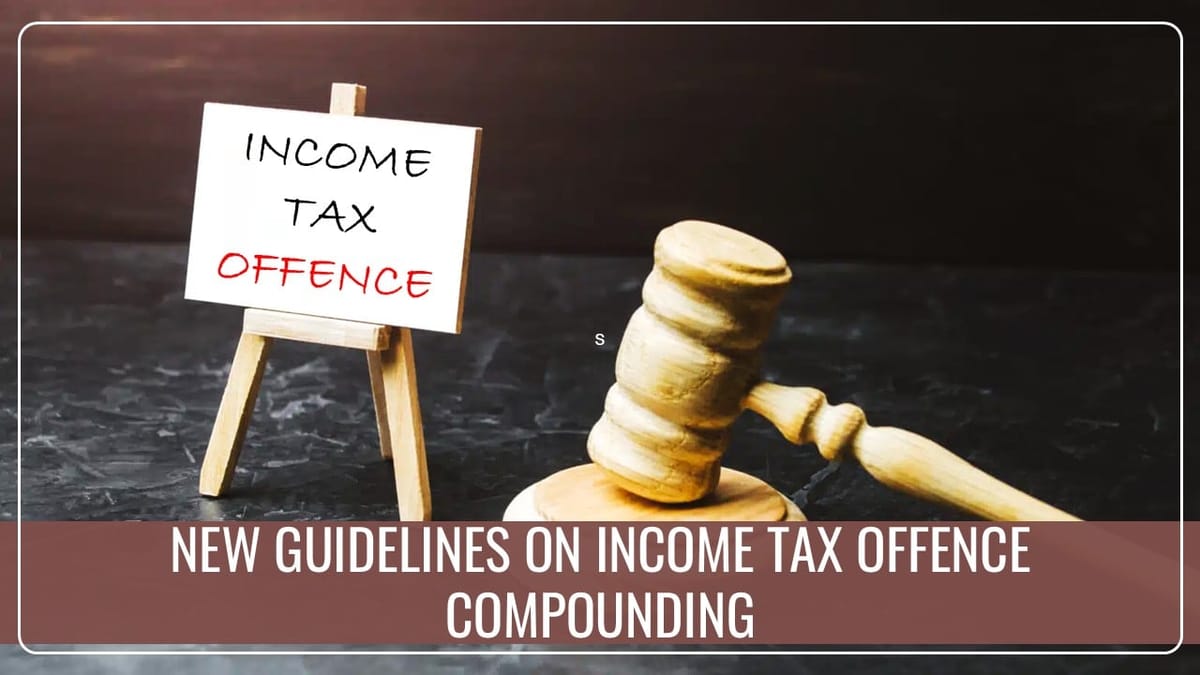CBDT has amended the guidelines for compounding offences under the Income-tax Act, 1961, to make the procedure easier and more accessible for the assesses.
Reetu | Oct 21, 2024 |

CBDT releases New Guidelines to Make Income Tax Offence Compounding Easier
The Central Board of Direct Taxes (CBDT) has amended the guidelines for compounding offences under the Income-tax Act, 1961, to make the procedure easier and more accessible for the assesses, according to a statement from the Ministry of Finance,
The guidelines for expediting the compounding procedure are included in the Finance Minister’s budget announcement list.
By removing many of the complications from previous rules, the aim of these revised guidelines is to make the process easier for taxpayers.
According to the government, by reducing the complications arising from the current various criteria, the new guidelines are expected to make the compounding process easier and lower the compounding charges.
The elimination of offence classification is one of the changes that makes the process easier for taxpayers. There is also no limit on how many times an individual or company can apply for compounding.
According to the ministry, if there are errors in previous applications, applicants may file a new application after fixing those issues, which was not allowed under the previous guidelines.
Furthermore, the amended guidelines allow for the compounding of offences under sections 275A and 276B of the Income-tax Act. Previously, there was a 36-month time limit to file compounding applications following the submission of the complaint; now, this restriction has been removed, giving taxpayers more freedom.
The new change is aimed at companies and Hindu Undivided Families (HUFs). The main accused no longer had to file the compounding application. Rather, the offences of both the main accused and any co-accused can be compounded whenever the relevant compounding charges are brought by the main accused or any of the co-accused.
Additionally, the compounding charges have been reduced. Interest charges for late compounding fee payments have been waived.
Furthermore, the rate of certain offences, such as TDS defaults, has been reduced to a single rate of 1.5% each month, down from prior rates of 2%, 3%, and 5%. The compounding charges calculation process for non-filing of tax returns has been simplified, and co-accused persons will no longer be charged separate compounding fees.
The changed guidelines will apply to both pending and new applications beginning the date they are issued, replacing all previous guidelines on the subject.
To make tax compliance easier for businesses and individuals, the government has taken an additional step.
In case of any Doubt regarding Membership you can mail us at [email protected]
Join Studycafe's WhatsApp Group or Telegram Channel for Latest Updates on Government Job, Sarkari Naukri, Private Jobs, Income Tax, GST, Companies Act, Judgements and CA, CS, ICWA, and MUCH MORE!"